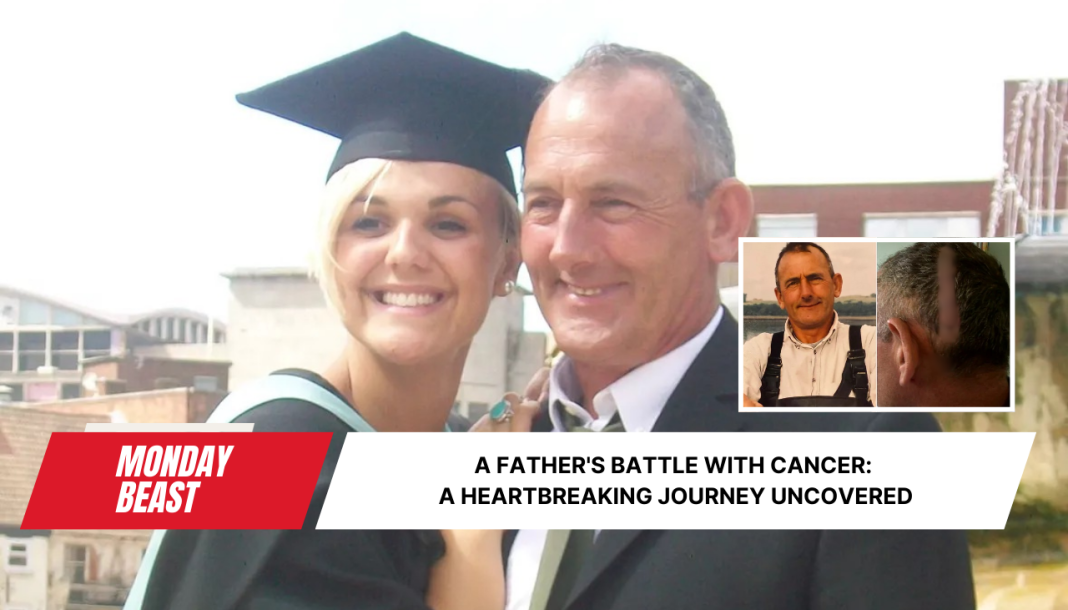Understanding the Struggles of an Ignored Patient
Imagine living in a world where your pain is dismissed. This was the reality for Stephen Blakeston, a father from Hull, England. His story, marked by tragedy and misunderstanding, highlights a critical issue in our healthcare system. How often do we overlook the voice of the patient? How often do we dismiss their suffering as mere stress?
When Stephen first experienced debilitating headaches, he was met with skepticism. His daughter, Hollie Rhodes, recalls her shock when doctors minimized his symptoms. It’s a feeling many families can relate to, amplifying their distress. Why do professionals sometimes fail to listen to those they treat? Stephen’s story raises important questions about the consequences of such medical oversight.

Hollie remembers the moment vividly. ‘Mum called me saying he was jumbling up his sentences and not making any sense,’ she shared. The lack of urgency from health professionals can be frustrating and infuriating, especially when those we love are suffering.
The Heart-Wrenching Diagnosis
Stephen’s condition worsened. Following an agonizing visit to the GP, he was finally referred for a CT scan. Just imagine the uncertainty, the anxiety, knowing something was wrong but having no concrete answers. The scan revealed a tumor on the left side of his brain. In that moment, time stood still for Hollie and her family.
The biopsy confirmed their worst fears: high-grade glioblastoma, a cancer known for its aggression and resistance to treatment. It’s a diagnosis that sends shivers down anyone’s spine. As Stephen underwent surgery, the family held onto hope. Yet, it was mingled with dread. Did they have enough time left with him?

After surgery, there were fleeting moments of optimism. Hollie spoke of the relief when scans showed no sign of recurrence. However, the battlefield of recovery is fraught with setbacks. Just a year later, tragedy struck again when Stephen collapsed at home.
The Impact of Loss on a Family
Hollie recounted, ‘We called an ambulance, but they couldn’t save him.’ Those words, filled with heartbreak, resonate deeply. How do you move forward when everything feels shattered? The trauma of grief can leave one feeling utterly lost. It’s a pain all too familiar for anyone who has lost a loved one too soon.
The uncertainty surrounding Stephen’s death—a blood clot potentially linked to his cancer or treatment—lends an even heavier weight to the family’s burden. Each unanswered question adds layers to their sorrow. In the end, he passed away on the floor of his own home, surrounded by familial love.
Turning Grief into Action

In the wake of such a loss, Hollie chose to honor her father’s memory. She embarked on an ambitious mission: running the London Marathon. It’s a testament to her resilience and dedication, not just for her dad but for all those affected by brain tumors.
Hollie admits that running is not her forte. Yet the thought of her dad fuels her every step. ‘I’ll be thinking of my dad and how he never got to meet some of his grandchildren,’ she explained, her voice tinged with emotion. Each mile becomes a moment to remember him, to transform grief into purpose.
How can we channel our pain into something constructive? Hollie hopes her efforts will contribute to brain cancer research. After experiencing the loss, she feels compelled to protect others from the same heartache. The urgency of research funding is palpable, and she’s on a mission to help.
Supporting the Fight Against Brain Cancer
Hollie’s journey also underscores the importance of advocacy. Raising awareness about symptoms and educating families can prevent tragic outcomes. It’s vital for health professionals to listen and take patients seriously. This is not just a personal story; it’s a broader issue affecting families everywhere.
As Hollie runs, she carries with her not just memories, but a message. The battle against brain cancer is ongoing. Engaging with others who have faced similar adversities is crucial. Everyone—friends, family, and society—must rally together. A unified front can lead to breakthroughs in research and treatment.
In times of pain, hope can emerge. As we reflect on Stephen Blakeston’s story, let us find inspiration in Hollie’s journey. Compassion, understanding, and action can create change. How will you choose to honor those you’ve lost? Each small step, whether running a marathon or sharing your story, can contribute to a larger cause. We can all strive to turn grief into something meaningful.




